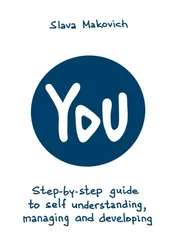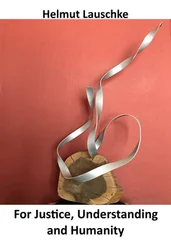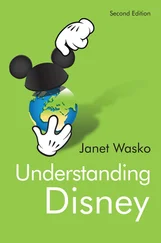Until the 1950s, almost all the population was 'white' or 'European coloured', ranging from the very blond people typically found in Scandinavian countries, to rather dark people, typically found in Spain or Italy. For, like all European populations, ours was mixed. People wandered into these islands over 40,000 years, and each new group that arrived intermarried with the people already living here, contributing their diverse colouring and features. Very few of them came from such distant areas as Africa and South-East Asia, so our population remained 'white'. But when the British government invited thousands of people from the West Indies to migrate to this country in the 1950s, those who arrived were black since their ancestors had been taken as slaves by the British from Africa to the Caribbean. A few years later, more people were invited, this time from the Indian sub-continent. Thousands of Indians and Pakistanis, (and later, Bangladeshis, when Bangladesh declared its independence from Pakistan) arrived. Like the immigrants from the West Indies they too looked different from the white population, since they had brown skins and black hair.
These immigrants came from our Commonwealth, formerly the British Empire. Although they lived thousands of miles from Britain, their relationship to us was rather like that of the countries of the 'near abroad' to Russia. In some sense they still 'belonged' to Britain. In any case, their children, born and brought up here, were and are certainly British citizens. At first, as they were easily identifiable as 'non-whites' or as 'blacks' or 'Asians', they attracted the abuse and discrimination that some people always use towards 'foreigners'. (I should say that at the time of writing, 'black' and 'Asian' are the standard polite terms to use for these groups in Britain. 'Negro' ceased to be used about 45 years ago. Over time such words often become unacceptable and new polite words must be found. At the moment, in Russia, 'black' is a term of abuse for people from the Caucasus. In Britain 'black' refers to people of African origin, whether from African countries or from the Caribbean.)
Thirty years ago the Government introduced legislation to make it a crime to 'incite racial hatred'. In order to identify the problems they set up a Commission for Racial Equality whose job was to ensure that the law was supported by campaigns, research and help for the victims of racial abuse and attacks. Legislation did not solve all problems. In the early 1980s race riots in London and elsewhere were shocking enough to require a special judicial investigations. The judge's report pointed out that both blacks and Asians continued to suffer discrimination. As a response to the report, the Government began keeping statistics to trace any official signs of discrimination, and at this point the word 'ethnic' began to be widely used in public discussions. 'Ethnic minorities' meant 'black and brown' minorities, but not white ones. (Groups of Italians, say, or Poles, living in Britain were 'white'.) At the time of the 1991 census there were long discussions about whether to introduce a question on 'ethnic origin'. On the one hand, the Government needed the data in order to make sure that blacks and Asians were being treated properly. On the other hand, such questions might themselves seem racist to people who disliked being defined as a special group. Eventually, on the Census form, people were asked to identify their ethnic origin from a list of possibilities which included 'white'. Just over three million people, 5.5% of the population described themselves as belonging to a minority group. The answers provided useful data, so the question was included in the 2001 census. By this time the 'ethnic' or non-white groups had grown to nearly 8% of the population and the government was eager to find out the numbers of each of these minority groups.
Once again it was faced with difficult and delicate questions. During the decade from 1991 to 2001 people began to ask new questions about the British population which was becoming more and more mixed up. First, they wanted to know how many groups could be called 'ethnic'? If you were a British citizen of Chinese origin were you 'ethnic'? What about Malaysians? What about black people who came from African countries, who had acquired British citizenship? They did not feel themselves to be the same as black West Indians, And the Irish protested loudly at being included in the 'white' category when their real identification was 'Irish' as opposed to 'British'! (The Irish objection illustrates the illogicality of the whole exercise!) Another problem was to decide how the increasing numbers of 'mixed race' citizens, the children of marriages between white and black, or white and Asian or Asian and black British citizens, could identify themselves? Did they have to choose one 'ethnic group' or could they belong to two? (This is still a small group, but it is the fastest growing group in Britain.)
The Government tried to satisfy everyone, and began to include 'mixed race' categories, so that throughout the 1990s on all official forms where people were asked to identify their ethnicity, the list of choices grew longer and longer. Sometimes there were twenty choices on a simple form. Was this bureaucracy run mad, or a sincere attempt to register the special needs of minorities? The lists are comic, even absurd, but they bear witness to a very important phenomenon: for more than thirty years generations of children have grown up taking a 'multi-ethnic' society for granted. 'We, the British' now include around four million non-white citizens. They are part of our society, they are a small minority, but a significant minority, and as part of the question of 'Who we are', they are normal.
Although people from the West Indies and the Indian subcontinent made up the majority of the immigrants who came here in the 1950s, 1960s and 1970s, they were followed by people from nearly every country in the world. Turks, Chinese, Iranians, Americans, Nigerians, Bosnians, Afghans, Kenyans, Iraqis, Somalis, Chileans, Greeks, Taiwanese, Poles, Russians. Some of these people were refugees, some came to be with family members already here, others came hoping to create a better life for their families, others came simply to explore and work in another country. Many of these people arrived but then left; there is always a flow of migrants who do not stay for long. Others, once they have received permission to stay, have settled down to live their rest of their lives in our country.
Not all immigrants become British citizens, but many do after they have fulfilled all the conditions, including a minimum of three years living here as a law-abiding, tax-paying resident, they also need a working knowledge of the English language. Their children, born and brought up here, become British. Legally they are as 'British' as those people who can trace back their ancestors for four or five hundred years to families living in the same small group of English villages.
In the years since the 2001 census a new group of people have arrived in Britain. They are 'white', so according to those old categories of the 1990s they are part of the majority culture. In fact they are a distinct group - Poles and other East Europeans - whose countries have joined the European Union and who are therefore free to look for work in other countries within the Union. Their arrival has had some comical consequences. Many Poles, coming from a country where almost everyone is white were shocked to find that they were working alongside black or brown British people. 'How can this be?' they ask. 'Isn't Britain a white country?' And the answer they have discovered is one which the white British have grown accustomed to over thirty years. We are now a country of visibly different groups - and we are used to being mixed. British white children study in classes with British Asian and black and other children of different cultural backgrounds. They are being taught by teachers of different ethnic groups, and this they take for granted. For children everywhere, what they happen to know is normal, and for most British children the experience of living in a society of people of different colours and features, different traditions and histories, is normal. The British have been all mixed up.
Читать дальше












